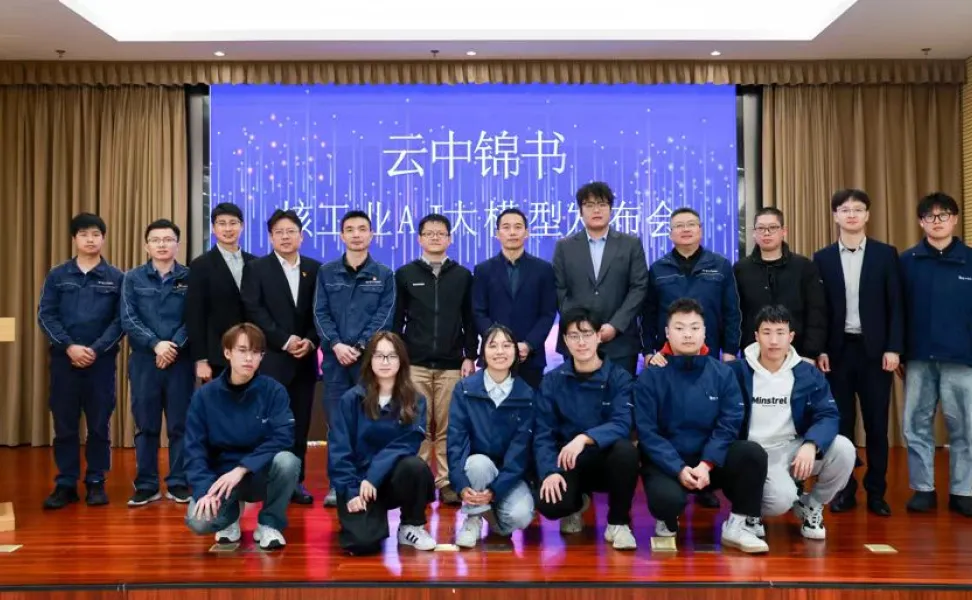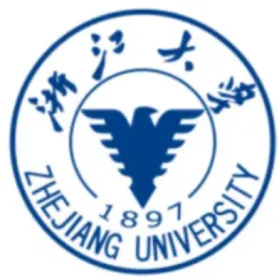For many STEM professionals looking to venture into entrepreneurship, technical skills are only one part of the story.
Zhang Yifei and Feng Huaiqu discovered this firsthand as they launched ventures tackling two of China’s biggest challenges: Digitalizing the nuclear sector and modernizing rice production.
We spoke with both founders to find out how their business school experience helped them launch startups.
“To drive innovation and bring cutting-edge solutions to market, I needed a deeper understanding of business strategy, leadership, and market dynamics.”
With more nuclear reactors under construction than any other country, China is widely regarded as a global leader in nuclear energy—a clean-energy alternative to fossil fuels.
To meet its goal of carbon neutrality by 2060, as pledged under the Paris Agreement, the nuclear energy industry needs to move beyond outdated systems and address ongoing talent shortages.
Zhang, who had experience in both AI and nuclear energy, was aware of these challenges. He saw the potential of AI to help solve them, but knew he needed business expertise to turn the idea into a viable venture.
That’s where his Global MBA at Zhejiang University School of Management came in.
“I was drawn to pursue an MBA to bridge the gap between technical expertise and business acumen. I realized that to drive innovation and bring cutting-edge solutions to market, I needed a deeper understanding of business strategy, leadership, and market dynamics,” says Zhang.
Particularly important for Zhang was Zhejiang’s BEST Initiative—short for Business, Engineering, Science, and Technology—which offers STEM professionals a pathway into entrepreneurship through mentorship, startup resources, and project-based collaboration.
It was through the BEST Initiative’s cross-campus collaboration that Zhang met his co-founders and launched Zhenli Technology, a startup focused on applying AI-generated content (AIGC) and large language models to the nuclear industry. The goal was to create intelligent ‘digital engineers’—AI tools designed to automate repetitive tasks and help engineers work more efficiently.
“From mentorship by industry experts to access to cutting-edge resources and interdisciplinary collaboration opportunities, the BEST Initiative played a pivotal role in shaping Zhenli Technology,” says Zhang (pictured).
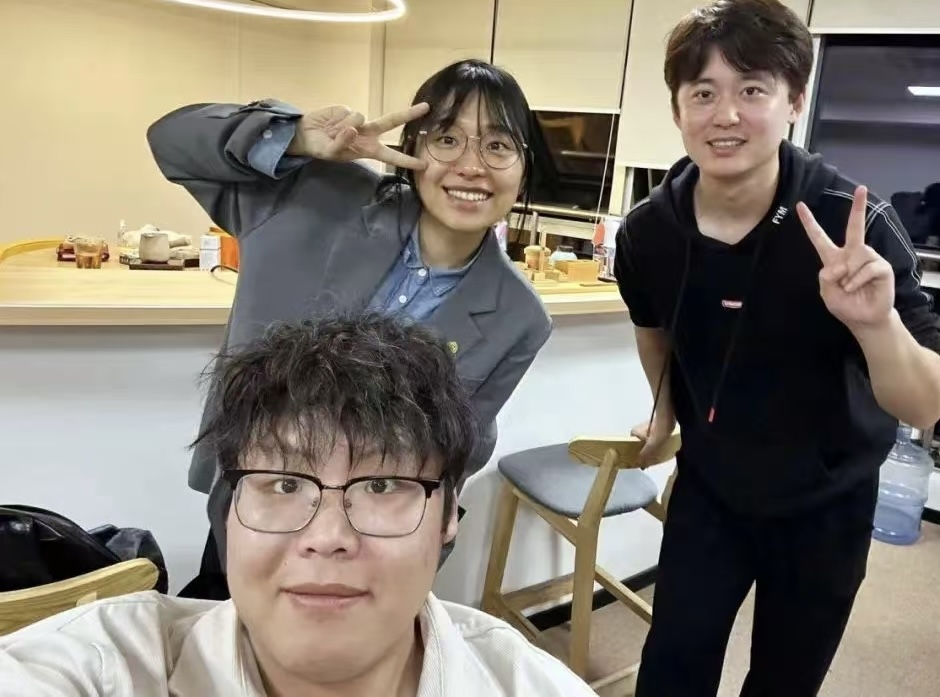 Zhang pictured (in front)
Zhang pictured (in front)
Through entrepreneurship clinics, pitch competitions, and Zhejiang’s Business+ incubation platform, he gained the tools to refine his business model and connect with investors. At the same time, faculty mentor Professor Chen Xi helped Zhang develop a sound business strategy.
With support from the program and its network, Zhenli Technology raised two million RMB (approx. US$275,500) in angel investment and secured a partnership with nuclear power plant Fujian Ningde Nuclear Power Co., Ltd. and Zhejiang University.
Together, the three parties launched an AI lab and co-developed Yunzhong Jinshu—a large model platform designed to accelerate the digital transformation of China’s nuclear industry.
“My vision for Zhenli Technology is to become a healthy force leading the development of AIGC in China, amplifying the productivity of every engineer tenfold,” says Zhang.
His advice to other STEM professionals is to make the most of every opportunity an MBA provides.
“Use your MBA to learn fundamental business knowledge and fully utilize the resources and network provided by the BEST Initiative, without losing focus on your technical expertise.
“Building a diverse professional network, actively seeking mentorship, embracing interdisciplinary collaboration, and being courageous in testing your ideas in real-world scenarios are also crucial,” Zhang concludes.
“When I discovered the BEST Initiative, it felt like uncovering the golden key to modernizing agriculture”
You might not expect innovation in robotics to come from rice fields, however, for Feng Huaiqu, that’s exactly where his entrepreneurial journey began.
While completing a PhD in Agricultural Mechanization Engineering, Feng studied China’s hybrid rice seed production system—a central process in the country’s food supply. Hybrid rice is created by cross-breeding two types of rice plants to increase crop yields, but producing the seeds is labor-intensive and still relies heavily on hand pollination.
During his fieldwork, Feng observed farmers spending long hours manually pollinating crops in flooded rice fields. Seeing first-hand how much time and effort the process demanded, he set out to create something more efficient.
“That moment crystallized my realization that agricultural innovation can’t remain confined to laboratories,” he says.
Eager to turn his research into something market-ready, Feng joined Zhejiang’s Lite MBA program—a one-year initiative that brings together PhD students and Global MBA candidates in a shared classroom environment focused on entrepreneurship. There, he met classmate Wang Kaizhi (pictured), a full-time Global MBA student, and the pair began exploring how they could combine their expertise to tackle real-world agricultural challenges.
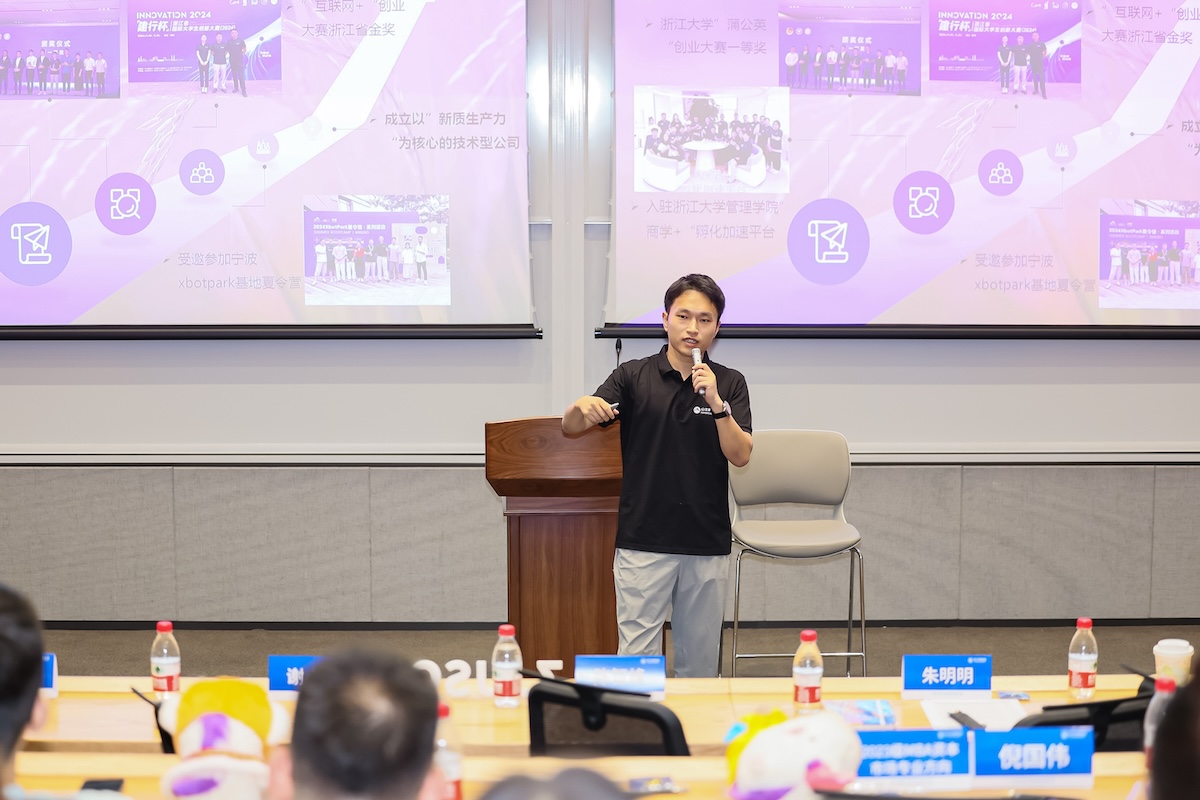
It was Wang, drawing on his background in manufacturing and food processing, who identified the unmet need in hybrid rice seed production during a visit to a local farming cooperative.
“At that time, Feng and I both agreed that this was highly feasible. We could start by understanding the needs and then translate them into technical terms. By combining management science with agricultural mechanization engineering, we could tackle the current challenges in hybrid rice seed production," says Wang.
Together, they developed the idea for the Shanzhu Robot—an intelligent machine built to automate the process of hybrid rice pollination.
“When I discovered Zhejiang University’s BEST Initiative, it felt like uncovering the golden key to modernizing agriculture,” says Feng.
The program gave them access to practical business training, collaboration with experts from other disciplines, and startup resources. Through the MBA Action Learning course, for example, Feng and Wang's team spent three months observing 137 farmers at work.
“There were technical challenges, but a big business hurdle came from the farmers’ distrust of these ‘clunky metal boxes’. It revealed a hard truth: Even the most advanced technical features can’t replace the trust and instinct that farmers bring to their work,” he says.
To bridge that gap, they developed a feature that keeps farmers involved in the process. Now, when the robot detects abnormal conditions, it sends alerts directly to the farmer via WeChat.
“Although this robot is designed specifically to address the issues of hybrid rice seed production quality and efficiency, we hope that in the future, it can empower the modernization of the entire agricultural sector, ensuring national food security and contributing to rural revitalization and common prosperity,” Wang adds.
Feng leveraged multiple resources from the BEST Initiative to move the startup forward, from collaborating with AI specialists to improve the robot’s software, to securing seed funding through entrepreneurial competitions and incubation platforms such as Zhejiang’s Business+ and Ningbo’s XbotPark.
Today, the Shanzhu Robot is already being deployed in rice fields across Ningbo, one of the largest cities in Zhejiang province.
“In the short term, I’m focused on making the robot more reliable in difficult field conditions. Longer term, I hope to build a platform that supports farmers throughout the agricultural cycle,” Feng concludes.
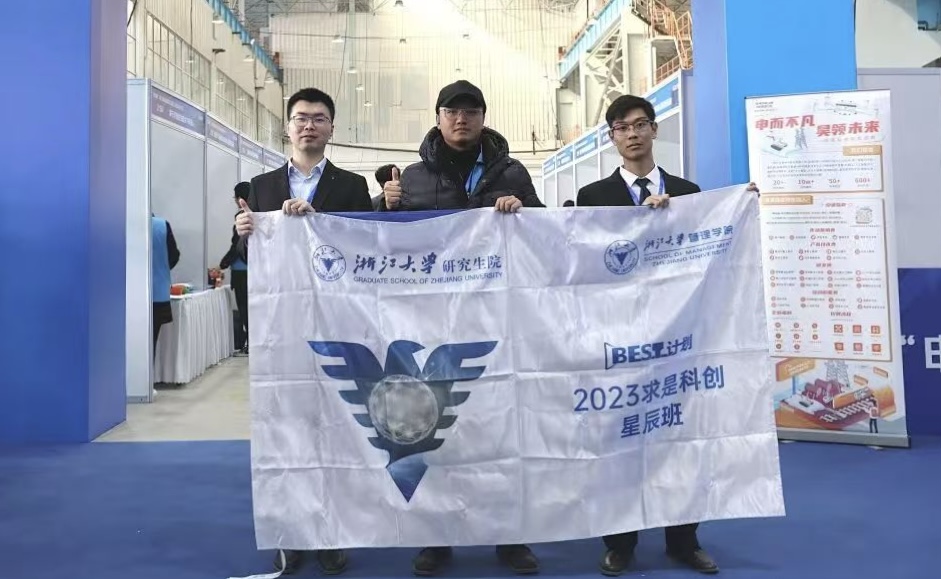 Feng (middle)
Feng (middle)


